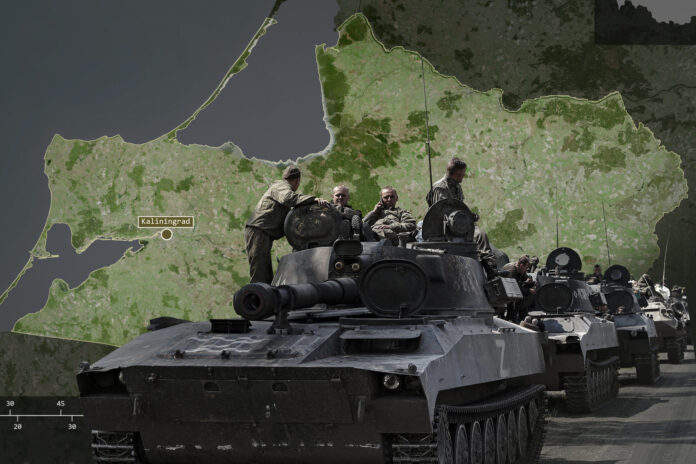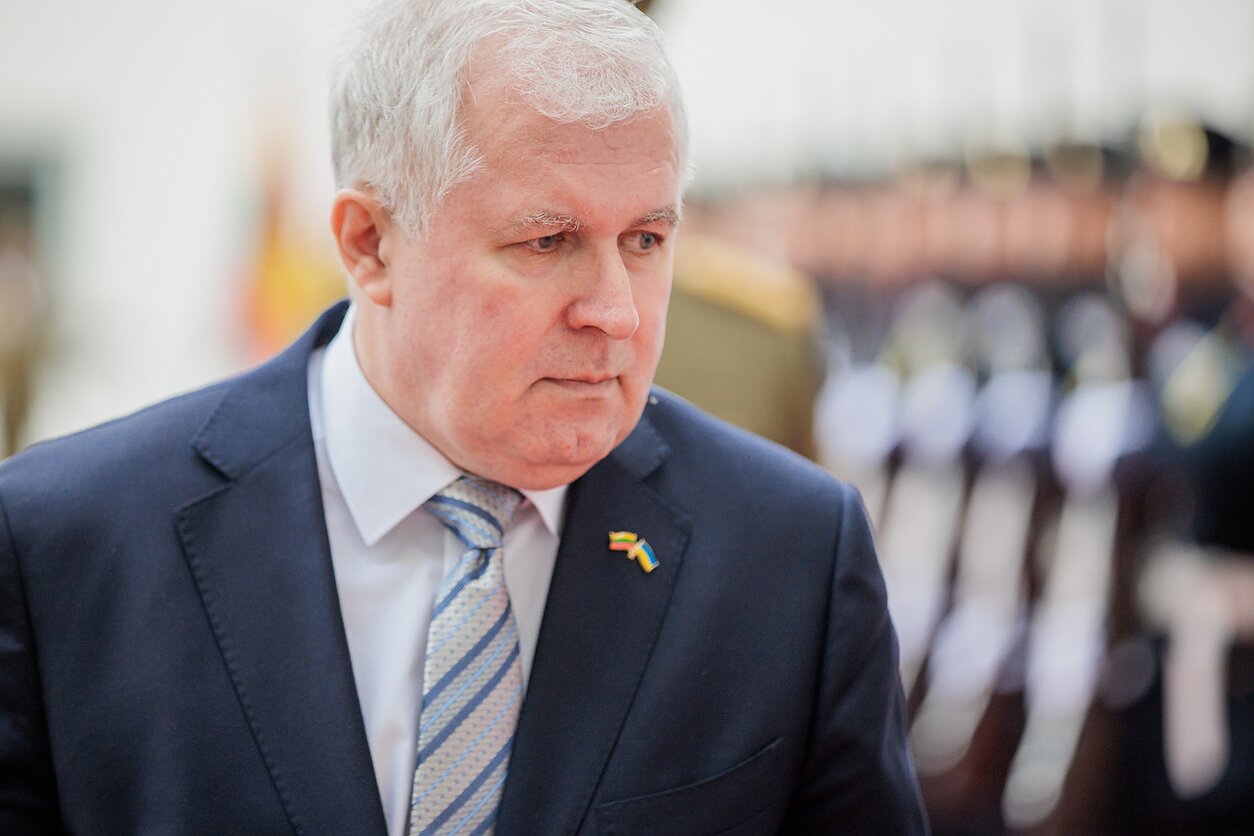
The State Security Department of Lithuania published its annual report on national security threats on March 9. It states that the war in Ukraine has weakened Russia’s military capabilities in its Kaliningrad region, wedged between Lithuania and Poland, only to some extent.
Deployment to occupied Ukrainian territories mostly affected the ground component, while air and naval forces remained practically untouched, according to the document. Lithuanian officials claimed earlier that military capabilities in Kaliningrad had been significantly diminished due to the ongoing war in Ukraine. The report states that the existing capabilities are sufficient to perform their critical function – to obstruct deployment of necessary defence capabilities to the Baltic sea region and disrupt the freedom of manoeuvre for opposing forces, thus attempting to gain an advantage in the initial phase of a conflict. The Kremlin is also trying to prepare the Kaliningrad region for “complete isolation and [to] ensure that its energy system is capable of functioning independently”.
Regional authorities and businesses in Kaliningrad are concerned about economic problems and are keen on maintaining transit of goods and energy resources via Lithuania. Lithuania suspended the transit of goods to Kaliningrad in June, citing a clarification from the European Commission. However, the transit was resumed under tighter rules several weeks later after the EC issued guidance over the transit. Russia called the transit suspension a blockade of Kaliningrad and sparked concern in the West over possible escalation of hostilities. The Kremlin is likely to continue increasing tensions in the region in order to achieve at least symbolic concessions, if Kaliningrad’s transit conditions are not satisfactory or if the economic problems in the area deepen.
The second area of concern outlined in the report is that Russia’s nuclear energy giant Rosatom has covered up incidents at its plant in Belarus. “Rosatom tries to retain position in the nuclear energy market; however, according to intelligence, the technologies it provides are defective,” contrary to the corporation’s claims that they meet high nuclear safety standards.
In April last year, the Astravyets plant’s Unit One was shut down for scheduled maintenance, but the defects found were not reported.
Intelligence services also stated that it is Rosatom’s ambition to expand its foreign operations and create dependence on its technologies and that the corporation’s management “usually takes the interests of Russia’s political leadership into consideration”. Implementing nuclear energy projects abroad by building and servicing nuclear power plants and supplying uranium products, Rosatom not only contributes to Russia’s national budget and finances the growth of the country’s military capabilities but also helps to project Russia’s political influence abroad.
Finally, Colonel Elegijus Paulavičius, director of the Second Investigation Department under the Defence Ministry stated that Russia is ready to continue the war in Ukraine for another two years. The report indicates that Russia under Vladimir Putin “becomes increasingly totalitarian”, but ” the war erodes the regime’s political and economic foundations”. Russia’s aggression against Ukraine has exposed “the inefficiency and corruption of the regime, revealed limits of Russia’s military power and lack of potential to secure its economic and technological development”. Russia’s dependence on energy exports has increased, the agencies said, adding that “there is no alternative to such an economic model”. According to the report,
“[Western sanctions] have not led to a collapse of the economy, but Russia’s economic problems, for example, dependence on raw material exports, inefficient logistics, declining production due to shortages of components and technology, and substantial budget deficit have been building up steadily and are likely to continue to do so in the short term.”
The majority of the Russian population has been passively supporting the war, but last year’s mobilization has revealed that “this support is not so strong as the regime’s propaganda has been trying to portray”, the intelligence agencies said. “Russian society has started losing its confidence in propaganda and the number of supporters of peace talks is growing”, according to the report, and “with the economic situation deteriorating, dissatisfaction with the Kremlin’s policies is likely to increase in the near term”. There are tensions and anxiety about the future among government officials and large businesses.
Failures on the battlefield, further mobilization and a sharp deterioration in the economic situation may have negative consequences for the stability of the regime. Moscow’s plan calls for expanding the Armed Forces by an additional 350,000 troops, setting up three new motor rifle divisions and reorganizing the current seven motorized rifle brigades into divisions, tripling them in size. These and other reforms would increase the number of military personnel, armament, and combat equipment units in the Western Military District by 30 to 50 percent.” However these changes are only possible in the long term, in five to ten years, even though Russia aims to carry out the reform by 2026.
Russia increased the official war spending by 30 percent last year. In 2023, the cost is estimated to reach five trillion rubles (66 billion euros); in fact, with all secret allocations the cost of war is assessed to be much higher. The agencies also warn that the “unrestricted possibility for Russia to deploy its forces to Belarus negatively affects the security of Lithuania and other NATO member states”.

Defence Minister Arvydas Anusauskas said that Lithuania’s military intelligence has carried out successful operations regarding external threats and the public is expected to be informed about them later this year.



























